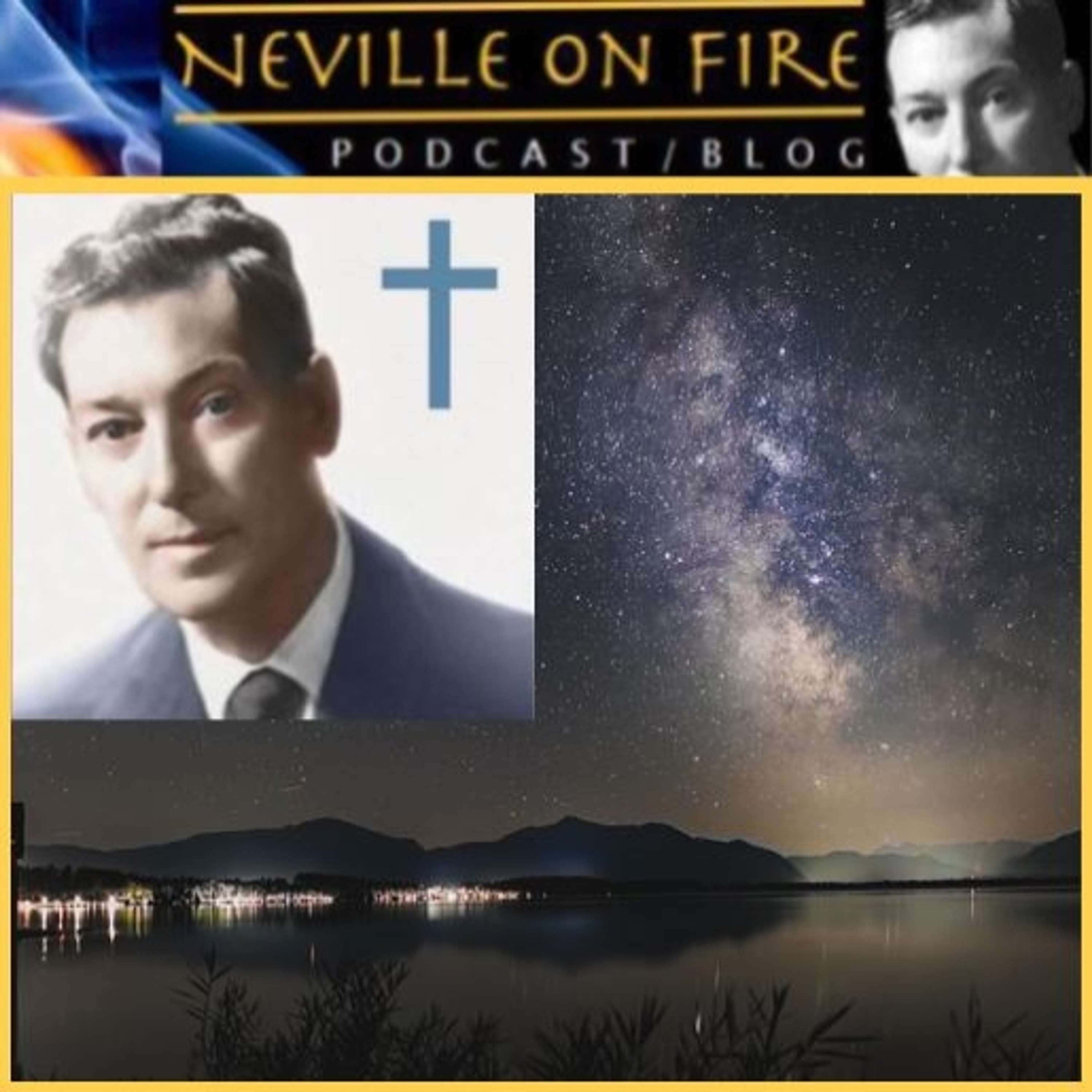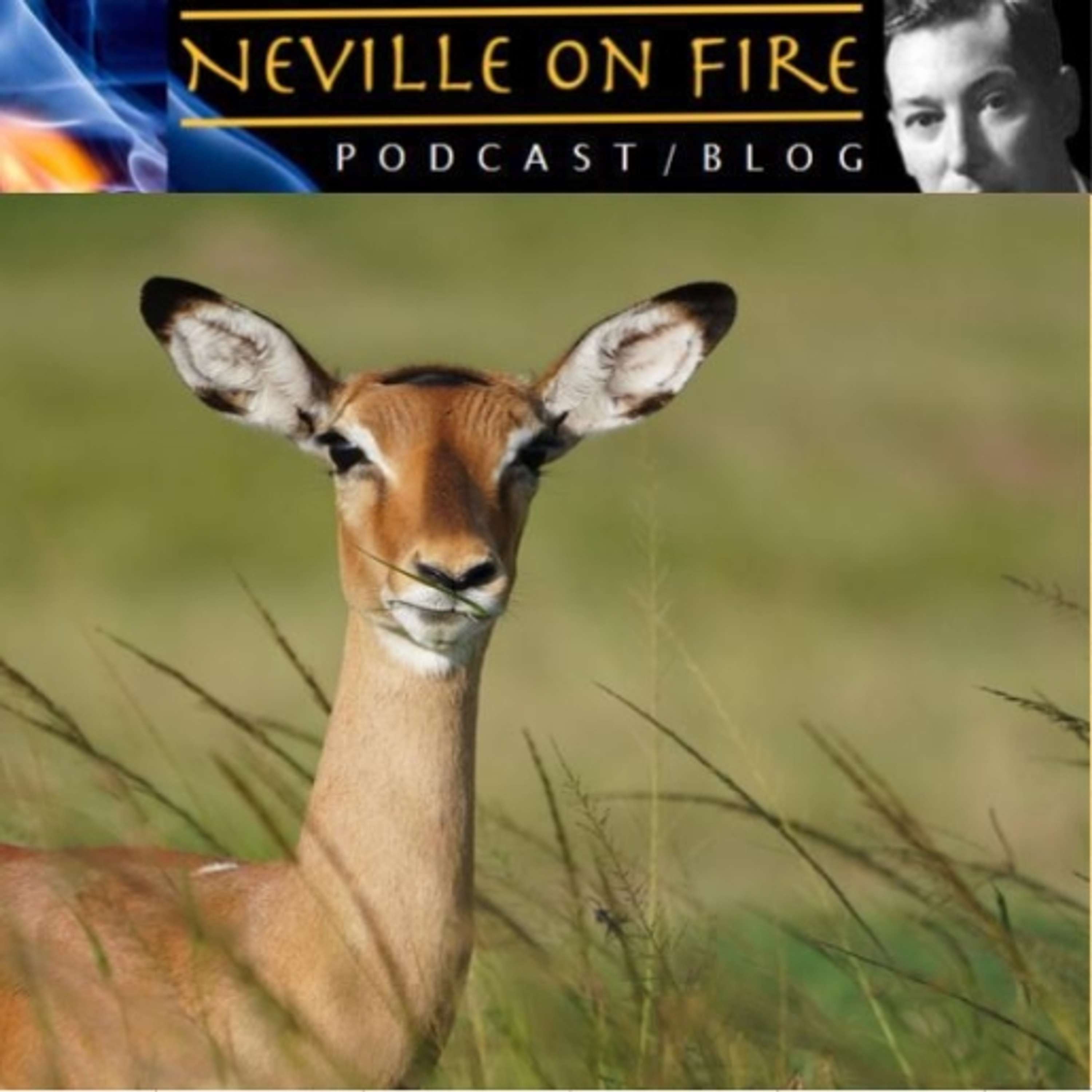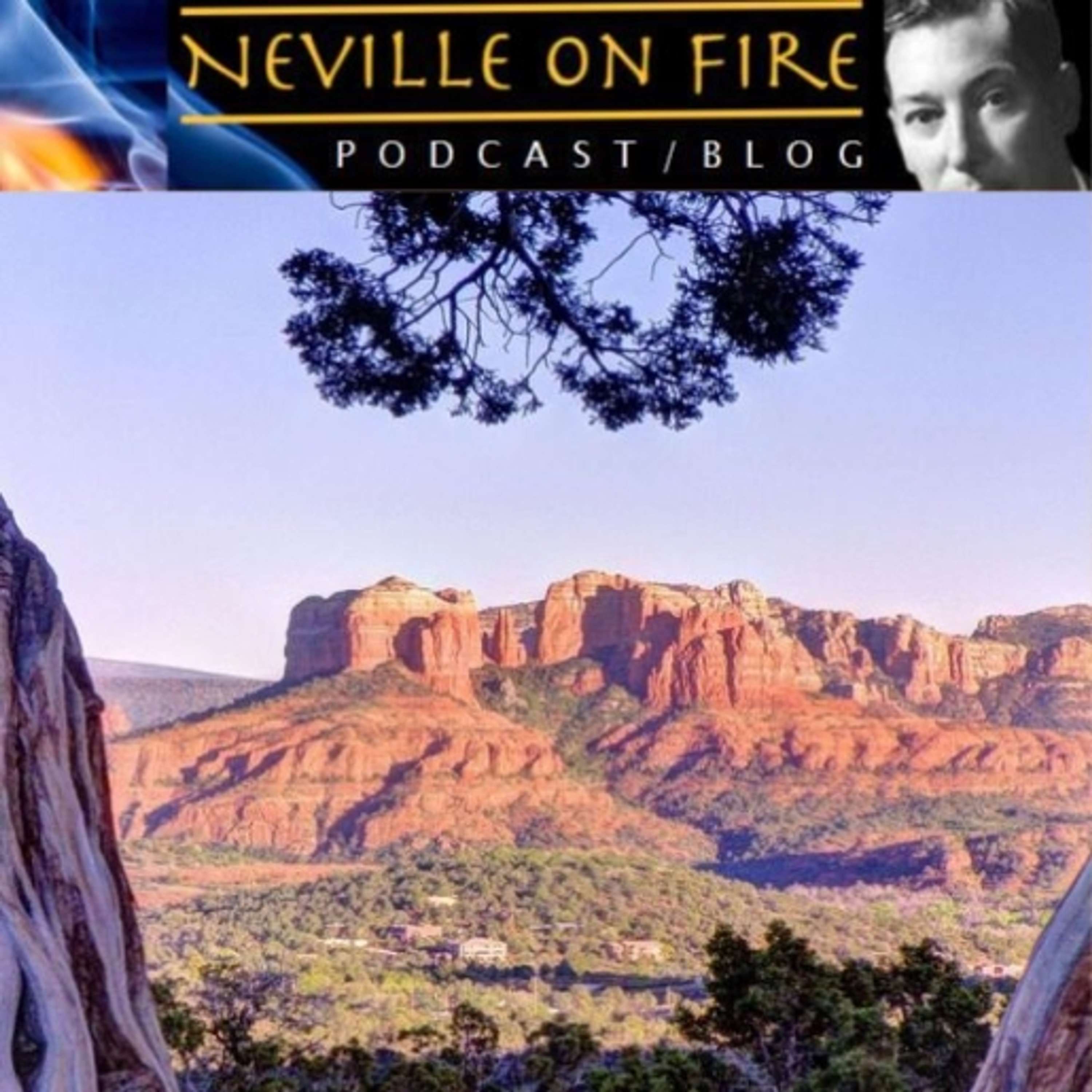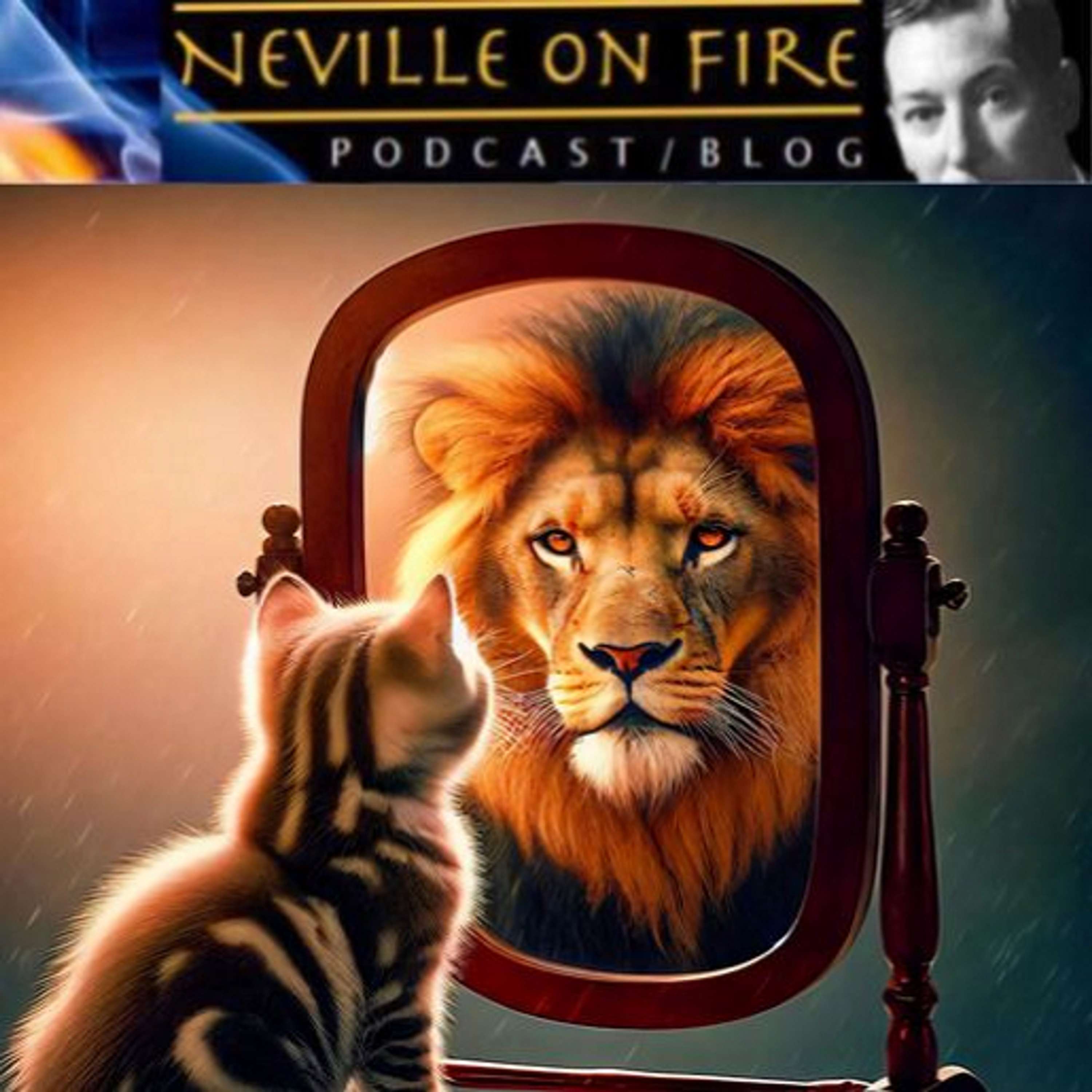Show Notes
SHOW NOTES
SUMMARY
part 1
- motive in creating the podcast
- disclaimer
- core concepts of Neville Goddard's teaching
- elements in future episodes: core concepts; methods and techniques; special topics; resources
part 2
- core concept and practice: awareness of being
KEY QUOTE
"If you consistently practice this exercise in self-awareness on every possible occasion... a permanent integration of the consciousness will result, and you will be able to remain in a state of self-awareness for as long as you wish to do so." (~ R. Alexander)
RESOURCES
Essential
1. pdf download: identity and nature - Notes on “I am” and excerpt from Dr. Rolf Alexander: exercise in awareness of being.
2. Source for (1): Dr. Rolf Alexander: Creative Realism (Literary Licensing; originally published Pageant Press, 1954)
3. Audio Enlightenment: Barry Peterson. Among several titles available free, this one is a fine place to start: At Your Command.
4. Neville Goddard Radio podcast (Barry Peterson): Episode 95 Fundamentals
Mentioned
5. The Structure of Scientific Revolutions by Thomas Kuhn
6. Scientific Literacy and the Myth of the Scientific Method by Henry H. Bauer
7. Science is a Sacred Cow by Anthony Standen
8. In Search of the Miraculous by P.D. Ouspensky
9. The New Man by Maurice Nicoll
Show Transcript
[edited for clarity]
Hello, and welcome to our podcast launch. This is Neville on Fire. My name is Ed.
Why Neville On Fire? Because at this stage in my life (I'm in my early 60s) I've discovered what I believe to be the most compelling, the most comprehensive and the most profound philosophy of life that I've ever encountered -- and I've studied quite a bit a long the lines of spiritual and psychological schools of thought.
What I want to do in this episode is first explain my motive in creating this podcast series and state an important disclaimer; second I’ll give an outline of the basic concepts of Neville Goddard's teaching, and state why I think it is worthwhile. Third, I’ll explain the elements of these podcast episodes that I intend to create. Finally, in the second half of this episode, I will address a core concept and practice: awareness of being.
My motive
My motive in creating the is podcast series is something in the nature of an experiment. I want to see whether it is possible to organize and present, in some sort of ordered way, a subject that is so vast and difficult, and in doing so, to see, quite frankly, whether I can help myself. I do have a selfish motive in that I want to better establish within myself a better understanding of this material. Another person, the listener, might find it useful to hear my record of my journey down this path.
So, in creating a record of my own path, my own understanding, that’s something that comes naturally to me, in one sense. What I mean is, I have experimented in the world of business, and, having had success, then I felt able to codify my methods in books and courses.
But in another sense, it doesn’t come naturally at all, because we’re dealing with transcendental matters, with psychological states and spiritual truth, which is a matter of self-persuasion, or revelation. While it might be gratifying if someone else finds this material helpful, I’m convinced that each person's truth is an individual path of discovery. Despite universal principles that might bind us together, no truth can be imposed from from without. It has to be discovered from within. So, with that said, I’ll go ahead on the premise that it's useful to try to persuade and convince, whether myself or others, of the value of certain ideas, methods and experiences.
Disclaimer
Now I have to state a disclaimer, and having had enough life experience directly related to this, I think it's only responsible to do this: This subject material is not light entertainment. It's going to touch on one's psychological state and therefore (please listen closely) the listener must take full responsibility for maintaining stability, for remaining grounded -- and for seeking professional help, if that is ever necessary, to deal with any psychological difficulty that may come up, such as trauma or something of that nature. I do not claim to give advice on those matters, and therefore the responsibility devolves to the listener for maintaining mental poise and stability. That is not to instil fear, it is simply a matter of the listener acknowledging that personal responsibility is called for.
Neville Goddard’s teaching
If you're not familiar with Neville Goddard's work already, I can offer an introduction to at least the main concept that I find the most compelling, and from which everything else is derived.
This is Neville’s instruction as to our nature and identity. Our nature and identity are distinctly different from what we usually learn through the most powerful main influences; certainly distinctly different from the viewpoint of materialist science. And Neville’s view is also distinctly different from the conventional religious view that God, the Creator, is an entity outside of oneself.
According to Neville’s view, our nature and identity is bound up with, is one with, the creative principle itself, with God. That is how vital and essential our being is. It's actually the very creative principle itself.
Well, right at the outset, this is outrageous and blasphemous, I mean, for persons who have what could be called a conventional religious outlook. A friend of mine says any teaching that “exalts self” is “sin and a lie from Satan”. Neville’s teaching does exalt the self. The question is, which self does it exalt? The surface-level ego, or what is referred to in scripture as the “second man”?
Obviously when Neville locates God within us, he doesn’t refer to the naive and superficial part of our being, but to its depths, its sleeping potential, meant to eventually awaken.
A sincere application of Neville’s teaching puts the lower self -- the ego or false personality -- through harsh trials of facing self-revealed truths. Truths about what? About oneself. An explanation of that process is given in a lecture by Neville called Fundamentals (see link in the show notes). It’s familiar to anyone who has looked into C.G. Jung and the process of bringing the dark side of one’s nature to light.
Neville’s teaching is egotistical and misguided also to anyone whose religion, so to speak, is complete faith in materialist science. As a side remark, much of what we call science and the scientific method have been shown to be most unscientific and dogmatic. References: The Structure of Scientific Revolutions by Thomas Kuhn who coined the expression “paradigm shift”; also an interesting book less known Scientific Literacy and the Myth of the Scientific Method by Henry H. Bauer; another that comes to mind is Science is a Sacred Cow by Anthony Standen.
And finally, Neville’s view will likely be rejected by anyone who isn’t particularly religious or scientific, but is conditioned by various institutions of society. I’m going to do an episode on that very topic.
Who can say what frame of mind is needed to even consider Neville’s thesis? I suggest four conditions might be needed. Such a frame of mind: 1. has been seeking; 2. sees the reality of a creator as obvious; 3. acknowledges the abuse perpetrated by institutions, religious and otherwise, and so has some degree of mental freedom from them; and, crucially, 4. has objective self-awareness or awareness of being.
What follows on the initial concept of our nature and identity in this teaching is a series of instructions and practices that give you an idea for the conduct of life.
And I really wish that I had met this at an earlier stage in my life. When I complain about this to friends, they say, ‘Well, maybe you weren't ready to receive the information at that time.’ In any case, the instructions for the conduct of life given in Neville's teaching are valuable. I think this part of the teaching is much less controversial, because the advice has to do with clarity in one’s goals, mental experimentation that harms no one, and being grounded in the golden rule.
Neville’s teaching is oriented to an ultimate purpose; it answers questions that we might come to ask when we're contemplating metaphysical or existential dilemmas, the nature of ourselves and the world at large.
My final remarks in summarizing main concepts is to say that, as I delve deeper into Neville’s ideas, I find the rationale for them very compelling and inspiring; they have a high degree of explanatory power.
There doesn't seem to be any contradiction in them. While there is still a mystery, there doesn't seem to be any glaring contradiction or flaw in the whole system of thought that Neville presents.
Despite the fact that it has that sort of sophistication, it addresses each person, the individual, exactly where he or she is in that moment. So it's practical, it's accessible by experimentation, and yet it's not superficial. It leads to possibly the most profound change or reversal of mind conceivable. It is indeed a path to enlightenment. So this is my rationale, my passion, or my Neville-On-Fire attitude!
Content of episodes
This leads me to explain, finally, what you can expect in this series of podcast episodes.
First, I'm going to touch on core concepts that underlie Neville’s teaching, and these will come up time and again.
The second element is methods or techniques.
The third element is special topics. In other words, we're going to go into depth on specific aspects of the teaching -- or aspects that are peripheral to the teaching, but are still necessary to explore. I already mentioned the detrimental effects of institutions. That’s one example. I think it's necessary to understand the effects of institutions upon our own subconscious. Other topics could be applying techniques to reach deeper understanding; to improve relationships, and material and financial conditions; to establish thriving and prosperous businesses; or to effect broader societal change. Neville sees in all goals the march of human desire towards ever higher and nobler purposes.
Finally, I will list links and resources.
In today’s show notes, you’ll find a link to the audio recordings and text presentations of Neville Goddard's works by Barry Peterson, who I think gives one of the best narrations I've ever heard -- his timbre, tone of voice and pacing. A whole series of Neville’s writings are posted on that site, all free.
So, in summary, I've given you so far today the purpose in this whole podcast series and what I'm trying to accomplish in terms of a documentation of a path; I included a disclaimer placing the responsibility for mental poise with the listener; I discussed the central concept in Neville’s teaching having to do with our divine nature and identity; finally I described the elements I hope to include in future episodes.
Awareness of Being
Today, to finish off the second half of this first episode, what I wanted to do is come back around to an core concept in Neville's teaching, and to explain it in some detail. And that is awareness of being.
This falls under the heading of basic precepts that underlie the whole teaching. It has to do with what we call awareness of being, or self consciousness, or self remembering -- a term that was promulgated by the Fourth Way school of thought. Now the reason I bring it up and I want to emphasise it in this first episode is because I've seen where people sort of take for granted the idea of consciousness by a misuse of the language that is common. In other words, the everyday use of the word ‘consciousness’ does not really give you the proper meaning and the actual practice of self-consciousness, self-awareness or awareness of being.
People, including psychologists and other scientists, throw around the word consciousness without personally experiencing exactly what it means. That's not arrogance on my part. That's a distinct fact, a psychological fact that was ascertained and explained at length in the Fourth Way school of thought.
For all the shortcomings of the Fourth Way, it would be hard to find a more incisive and coldly accurate assessment of the human condition. The main reference is In Search of the Miraculous by P.D. Ouspensky. It serves, in my view, as preparation for the discipline of mind and creatively positive orientation found in Neville Goddard’s work. Incidentally, it is clear (in the Fundamentals lecture, for example) that Neville read the Fourth Way, borrowed some of its terminology, and appreciated the writings of one of its main exponents Maurice Nicoll (British psychologist originally with C.G. Jung).
When people use the word ‘consciousness’, they normally refer to the state of mind that is the most common mental activity among human beings during the normal waking period of the day. And that distinctly is not consciousness. It's actually subconscious. In fact, it's almost purely subconscious.
Moments of true self awareness and awareness of being are ephemeral, and only perhaps accidental. I think there really is something to the message in many esoteric schools, where they say this information can only come to you by direct instruction. The crucial thing to understand is that awareness of being is not thought. It doesn't consist of words or concepts or feelings. It's the faculty of the mind that is able to witness the entire contents of the psyche in a given moment.
You may find useful a pdf that I'm going to have posted in the show notes. It's going to be a set of quotes from an author who is quite obscure: Dr. Rolf Alexander. He was connected briefly with the Fourth Way, but studied in Tibet in the early part of the 20th century, long before it was fashionable to go into Eastern mysticism and bring it to the West. He fully understood this whole concept of awareness of being, self-remembering, self consciousness in the moment. And this is the way I learned it, when this exercise was read to me. So I'm going to pass this on to you. It consists of a couple of pages, and I'll give you the reference. So please check the show notes for that.
Now you could be asking, Well, doesn't Neville cover awareness of being? He does. He talks about the name of God as given in Scripture as ‘I am’, and he also goes into the detail of what experiencing ‘I am’ is all about. And yet the references to it are largely fragmented, so it’s difficult to get a full explanation in one place. I think it's necessary to understand exactly what the ‘I am’ is all about. It's not merely saying the words ‘I am’. That is a kind of a pointer to the experience, but not the experience itself.
Here I'll give you a direct quote from the exercise. The author is Dr. Rolf Alexander, and he says:
“At first you may be able to hold the consciousness together for only a minute or two before it breaks apart again like a ball of quicksilver and rejoins the subconscious. If you consistently practice this exercise in self awareness on every possible occasion, however, a permanent integration of the consciousness will result, and you'll be able to remain in a state of self awareness for as long as you wish to do so.
Remember consciousness itself is wordless. The moment words are thought of, consciousness disappears. Words are subconscious symbols, but consciousness is an extremely alert state of vivid awareness, and it has nothing to do with words.”
So you can see that is distinctly different from the normal waking state of the average person!
It's something that has to be learned, and it has to be practised most diligently. I’m convinced that it’s the foundation of Neville's teaching, the very same thing as the ‘I am’ that he talks about. And if you don't learn it, then you run the risk, when contemplating what consciousness really is, of being subject to automatic or mechanical associations. That's the problem. The practice of self-remembering, or the pure awareness of being, is healthy. It helps you to escape any particular state that is undesirable, that you might be experiencing at a given moment. And so it helps you to transition to a place of equanimity, and then to select, as Neville recommends, a state that accords with your goal.
If you're already well-versed in meditation, or Buddhist practice, I mean non-identification, then you already understand this.
So this brings to a close our first episode. I have listed all works mentioned in the show notes. I appreciate your listening, and I hope you find value in the subsequent episodes. We'll talk to you soon!
Listen On
Also Listen
-

Who is Man? Neville’s Radical Answer
Book draft chapter 1. S1E01 revised, inviting your comments.https://nevilleonfir -

The Power of Noticing: How to Interrupt Mechanical Life
Conscious intervention is required for psychological growth. -

Let Go to Move Ahead: Neville and Sedona
First, review of first 15 episodes Season 2. Then explore incremental psychologi -

Conscious Self Persuasion
Science tries to define consciousness where it does not exist, and hypnosis whil


Comments & Upvotes